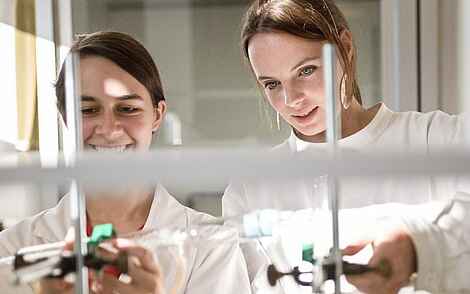When the first wave of Covid-related restrictions rolled through the schools in March 2020, Steiner Schools reacted quickly and tried to deal with the situation in a way that was both compliant and creative. Individual schools and/or individual teachers developed nature projects and maintained intensive contact with parents. This led to a whole series of springtime initiatives across classes 1 - 8 with and in nature. As a result, the community of schools moved closer together.
Imagination was needed; the exceptional situation provided the opportunity, it demanded new ways to enliven the lessons, despite the challenges of distance and technology. Through school visits I was able to see how most teachers perceived and mastered the pedagogical challenge in a responsible and commited manner.
With the second wave, the situation has become more complicated; the March/April experience is now a thing of the past and cannot be repeated. A certain fatigue amongst parents and staff is noticeable in the schools; the restrictions have returned – wearing masks, social distancing, reorganising day-to-day life – along with the deluge of statistics, and "having to be afraid", once more. In the upper classes it is amazing how flexible the young people are and how quickly they deal with the new situation in class. An 8th grade in the canton of Zurich has been going jogging with a teacher for 45 minutes every day for weeks after the main lesson, and then donning the masks again to make the subject lessons more bearable. In the 11th grade, two students, who tested positive, had to go into quarantine; however, the comrades stayed online and tried to break through the "isolation", so that the absent students surprisingly got to see a lot more of the maths lessons than if they had been there!
How today's teachers do their work each day despite everything, trying to do the best they can, is very impressive: Thank you!
A first, somewhat generalised observation shows that maybe one third of the pupils have coped relatively well with these circumstances, but two thirds have been adversely affected and are likely to face significant deficits in their development in the medium and long term.
Another observation is also worrying: a kind of polarisation is taking place, both in the parent body and in the colleges of individual schools regarding the interpretation of the measures, pro and contra (too much or too little). However, if these legitimate opinions lead to dogma, then dialogue becomes more difficult. This is where an important challenge for our schools can be found: the willingness to listen alongside a clear, unambiguous attitude regarding the pupils’ welfare. To consider the well-being (body, soul and spirit) of the pupils as the highest priority should remain the measure of all things; common sense is required.
It is to be assumed that the economic consequences for privately-owned schools without state subsidies in Switzerland will become serious over time.
Talking about a crisis during a crisis does not always make sense; we still lack the distance to do so. In my opinion, reading the essay by the American author Charles Eisenstein, "The Coronation", is to be recommended during this remarkable time of separation.
Robert Thomas, Steiner School Board Switzerland
translated by Trevor Mepham
